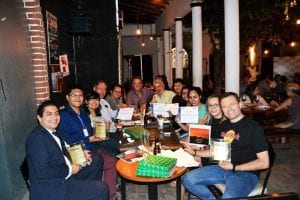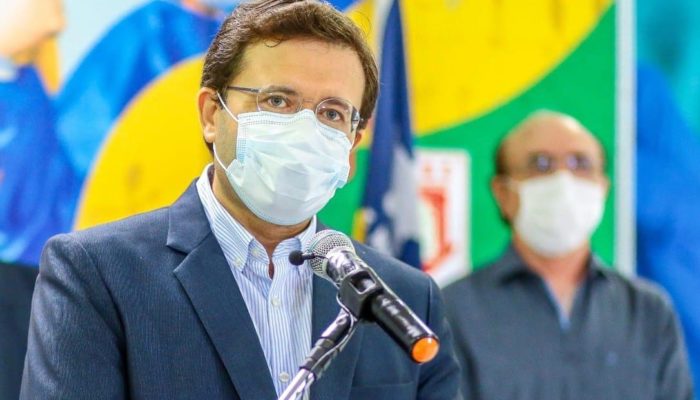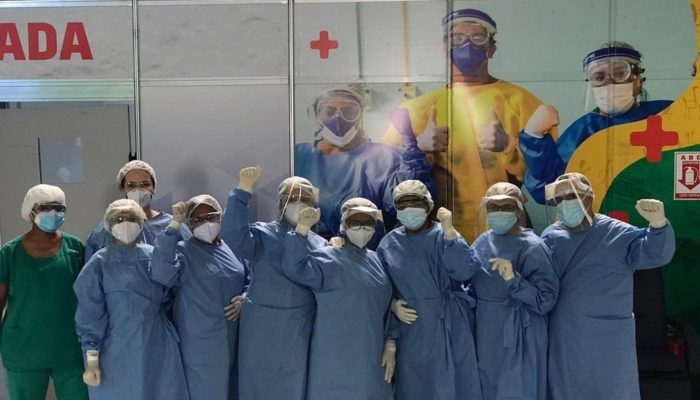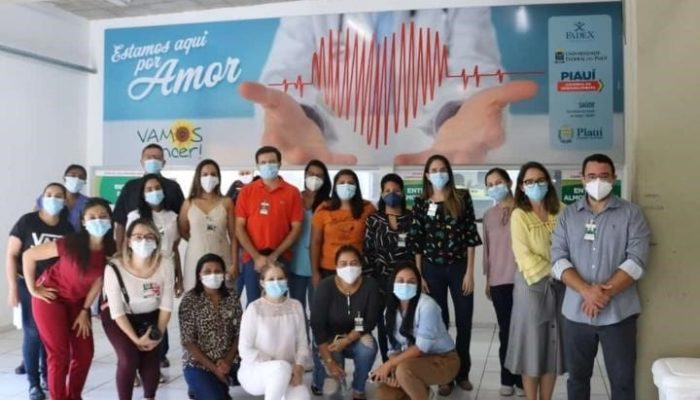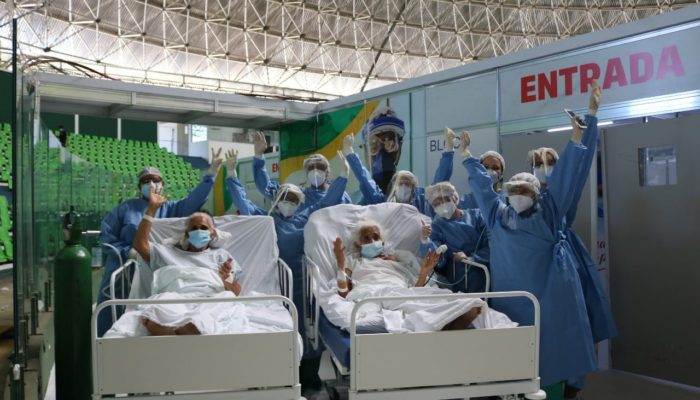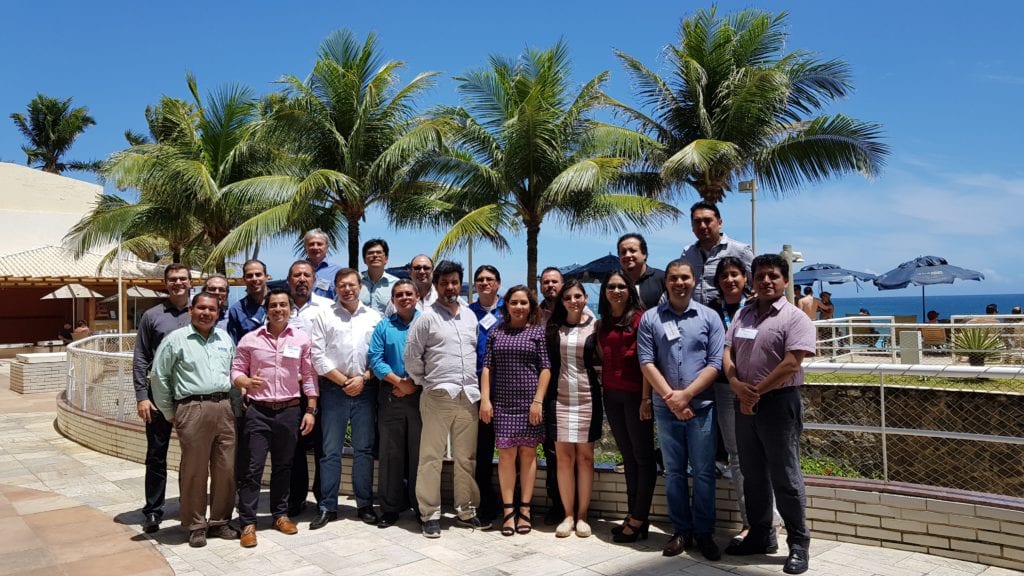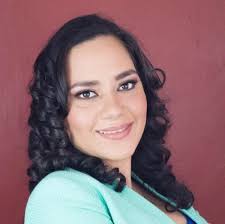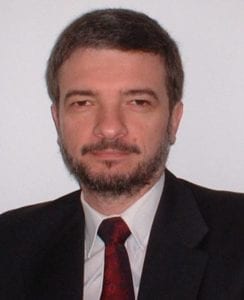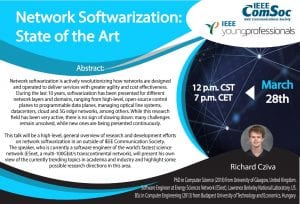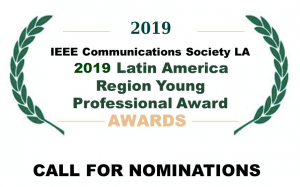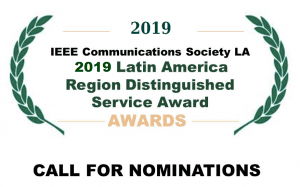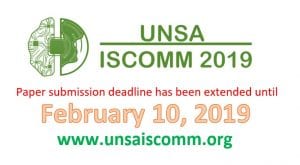During 2018, in the region we had 5 DLT (Distinguished Lecturer Tour), we thank Pedro Aguilera, DLT Coordinator, for the efforts made.
Yi Qian
From August 5th through 11th, Ph.D. Yi Qian visited three Latin America Chapters of IEEE Communications Society (ComSoc) in Chile, Bolivia, and Peru, as part of the ComSoc Distinguished Lecturer Tour (DLT) program. His keynote lectures were:
- “Security for 5G Wireless Networks”.
- “Smart Grid Communication Infrastructures”
- “Challenges and Solutions for LTE and 5G Vehicular Communications”
Professor Qian arrived Santiago, Chile in the early morning of August 6, 2018. He was welcomed by ComSoc Chile Chapter Chair Diego Dujovne and the previous Chair Pedro Aguilera. In afternoon, hi gave the lecture “Security for 5G Wireless Networks” was at Universidad Diego Portales. More than 80 people attended his lecture, with enthusiastic responses, questions and answers.
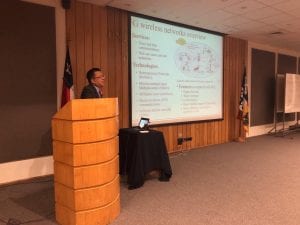
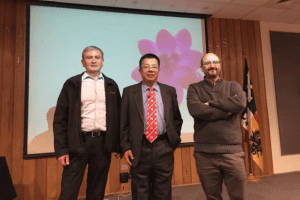
In Bolivia, professor Qian arrived La Paz, in August 7, 2018. Sandra Hidalgo, ComSoc Bolivia Chair, received him at airport in the La Paz International Airport. Yi gave two lectures in the same afternoon, in Hotel Casa Grande, the titles of my lecturers are “Smart Grid Communication Infrastructures” & “Security for 5G Wireless Networks”. More than 60 professionals, professors and students attended the lectures.
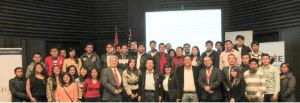
In August 8th, professor Qian arrived Cochabamba, Bolivia. Participated as a distinguished lecturer in the International Conference on telecommunications, in the Universidad Privada Boliviana, with his lecture “Challenges and Solutions for LTE and 5G Vehicular Communications” , about 40 people attended his lecture.
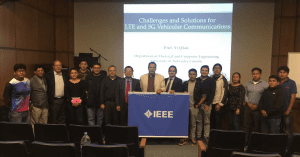
In Lima, Peru, professor Qian participated as a distinguished lecturer at IEEE INTERCON 2018. During his first night in Lima, on August 9th, he was at the gala dinner of the congress sharing his experiences with other Distinguished Speakers belonging to sister societies of the IEEE, and in the company of Fredy Campos, ComSoc Peru Chapter Chair.

The next day in the morning, professor Qian had a tour of the ancient ruins of Pachacamac, about 40 kilometers southeast of Lima. His Keynote Lecture at INTERCON 2018, “Security for 5G Wireless Networks” was in the afternoon, at Universidad Mayor de San Marcos, over 100 people, students and professionals, attended his lecture. Finally, in the Friday evening, Yi had a warm welcome from the three ComSoc Peru Chapter Officers, Fredy Campos, Carlos Velasquez, and Esmeralda Asurza with a lively night show, the best Peruvian folklore on stage in town.
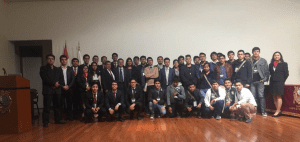
Sudhir Dixit
Professor Sudhir Dixit visited the sections of Ecuador and Colombia during the month of September, with the keynote conference “SDN, NFV and Cloud Computing for 5G Beyond Systems”.
In Ecuador professor Dixit visited 4 cities (Guayaquil, Cuenca, Quito and Ibarra), between the days of September 15 to 19, more than 500 people were part of this experience, thanks to the support of the student branches ESPOL, ETCM, ESPE and UTN .
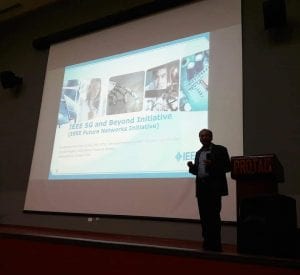
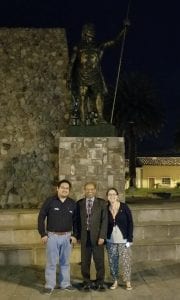
In Colombia, he gave the lecture in the cities of Cali and Bogotá. The conference addressed a description of the main new RAN technologies for 5G systems. Subsequently, an introduction of how a combination of licensed and unlicensed spectrum bands could jointly provide the expect ed network performance. This includes a general description of the LAA, LWA, LWIP and eLWA technologies.
Fawzi Behman
Professor Fawzi Behmann visited 3 ComSoc Chapters in Morelos, Cuernavaca city, Puebla, Puebla city, and Monterrey, Monterrey city. He delivered two keynote lectures: “Disruptive Internet of Things – Evolution, Applications Architecture and Future Trends” and “Developing IoT Solutions for Smart Homes / Buildings, Smart Car and Smart Energy”.
On September 22, the day of his arrival, he visited Mexico City. Next day, he visited the magical town of Tlayacapan and the city of Cuernavaca. On September 24th, he gave his first lecture on “Understanding Pre-IoT, IoT and Collaborative IoT (C-IoT) Model” at the National Institute of Electricity and Clean Energies (INEEL). After a general introduction to IoT and a broad vision on collaborative IoT, professor Fawzi focused on healthcare and wellness. He presented current and emerging solutions at hospitals, clinics, care centers and homes. He showed several examples of some of the adjacent technologies such as 3D, Robot, Drone and Wearables. Finally, the talk concluded with some of the factors and challenges to deliver scalable solutions, delivering better quality of services and experience.
On September 25, professor Fawzi Behmann moved to Puebla. There, he participated as a Distinguished lecturer in the “10th Seminar on Electronics and Advanced Design, 2018”, with the keynote lecture “Developing IoT Solutions for Smart Homes/Buildings, Smart Car and Smart Energy” in the National Institute of Astrophysics, Optics and Electronics (INAOE). The session was focused on smart homes/building along with smart energy and smart car exploring current and emerging solutions. The lecture covered architectural solution building blocks, including sensing, aggregation, and data analytics. Examples of some of the enabling technologies such as video surveillance, and drone were explored.
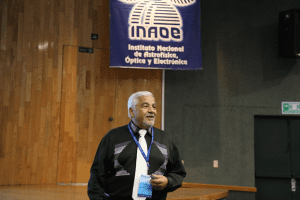
On the 27th and 28th he gave the lectures: “Understanding Pre-IoT, IoT and Collaborative IoT (C-IoT) Model” and “Developing IoT Solutions for Smart Homes / Buildings, Smart Car and Smart Energy” at the Technological and Higher Studies Institute of Monterrey (ITESM). Fawzi Behmann challenged the public with a provocative question: Is there a common vision for IoT, 5G and Virtualization by 2020? The answer to the question could be found on his idea of disruptive Internet of things. The talks concluded with “some of the factors and challenges to deliver scalable solutions, delivering better quality of services and experience.” To get there, these include development platforms, 5G, virtualization and security.
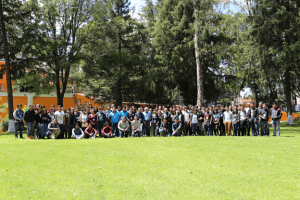
Adlen Ksentini
Professor Adlen Ksentini visited 3 sections of the IEEE in the cities of Montevideo (Uruguay), Buenos Aires (Argentina) and Valparaíso (Chile), with the conference “Network Slicing in 5G”.
The talk was given in a tutorial way in order to allow the attendees to fully understand why Network Slicing is needed, and which technologies are involved. Adlen started by presenting the requirement of 5G as specified by 3GPP, ETSI, NGMN and 5GPPP group. Then, he introduced the enabling technologies: SDN, NFV and Cloud computing. For each technology, Adlen gave a short history, concepts, challenges and how it can enable 5G. In addition, he gave for each technology, some research results obtained by my team and some research directions. Finally, he concluded the presentation by defining Network Slicing, how it could be achieved and research directions.
Professor Ksentini arrived to Montevideo on September 27th where I was hosted by Dr. Gustavo Giannattasio, the chair of Uruguay Chapter. He did his first talk on September 28th, during the talk the audience was composed by students, academic faculty members, and people from industry, they represented more than 50 persons. People from industry were mainly from the local Network Operator, and were very active by asking several questions related to 5G. After the presentation, they went for a dinner with the local chapter officers.
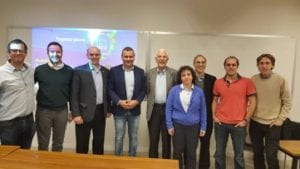
His second talk was on October 1 in Buenos Aires, Argentina, at the National Technological University, During the talk the audience was composed by students, academic faculty members and people from industry, they represented around 50 persons. Like in Montevideo, the people from Industry are mainly from local network operators. Several questions have been asked related to 5G, which show the importance of this topic worldwide. After the presentation, they went for a dinner with the local chapter members.

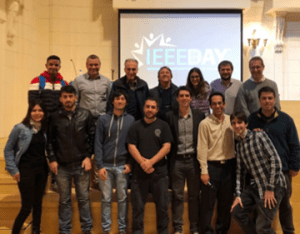
On October 2nd, professor Ksentin has been received by Prof. Diego Dujovne, the local chair of the Cosmoc Chile section. The 3rd October we went to Valparaiso University, where he did his third talk. After the presentation, they went for a launch with the faculty members.
Joel Rodrigues
After attending the IEEE LATINCOM 2018, in Guadalajara, Mexico; Ph.D. Joel Rodrigues visited three sections: Uruguay, Chile, and Bolivia, in November 17-23. His lecture topic was “Internet of things (IoT) and Sensor Networks”.
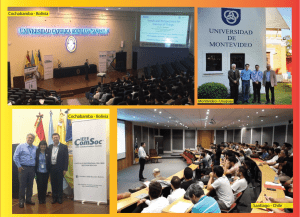
In Uruguay, professor Rodrigues visited the University of Montevideo and presented the lecture by November 19th. They had an interesting discussion regarding IoT on Smart Cities and related initiatives where the colleagues are interested and participating. We were received by the team from the IEEE ComSoc Uruguay Chapter, Gustavo Giannattasio (Chair), Rafael Sotelo, and Juan Pechiar. In the same day, he traveled to Santiago de Chile.
In the first day in Chile, he was received by Pedro Aguilera, the former Chair and current Vice-Chair of the IEEE ComSoc Chile Chapter. At November 20th, Joel was accompanied by Diego Dujovne (the Chapter Chair ), and he was honored to present a keynote at a national event called Congreso TIC 2018 (ICT Congress 2018). This congress is a joint organization from Universidad Diego Portales (that hosted the event, in Santiago), Universidad Técnica Federico Santamaría, Universidad de Concepción, and Universidad de la Frontera.
The 3rd country was Bolivia. Professor Rodrigues arrived in Cochabamba at Nov. 21st, and was received by the students of the IEEE ComSoc Bolivia Student Chapter, by Sandra Hidalgo (the Chapter Chair) and Eduardo Trigo. He attended the IEEE event organized in Bolivia, BETCON (Bolivian Engineering and Technology Congress), and presented two keynotes, one focusing on IoT and other addressing eHealth and mobile health technologies. BETCON 2018 was organized by the Bolivia Students Chapter from the Universidad Católica Boliviana “San Pablo”.

